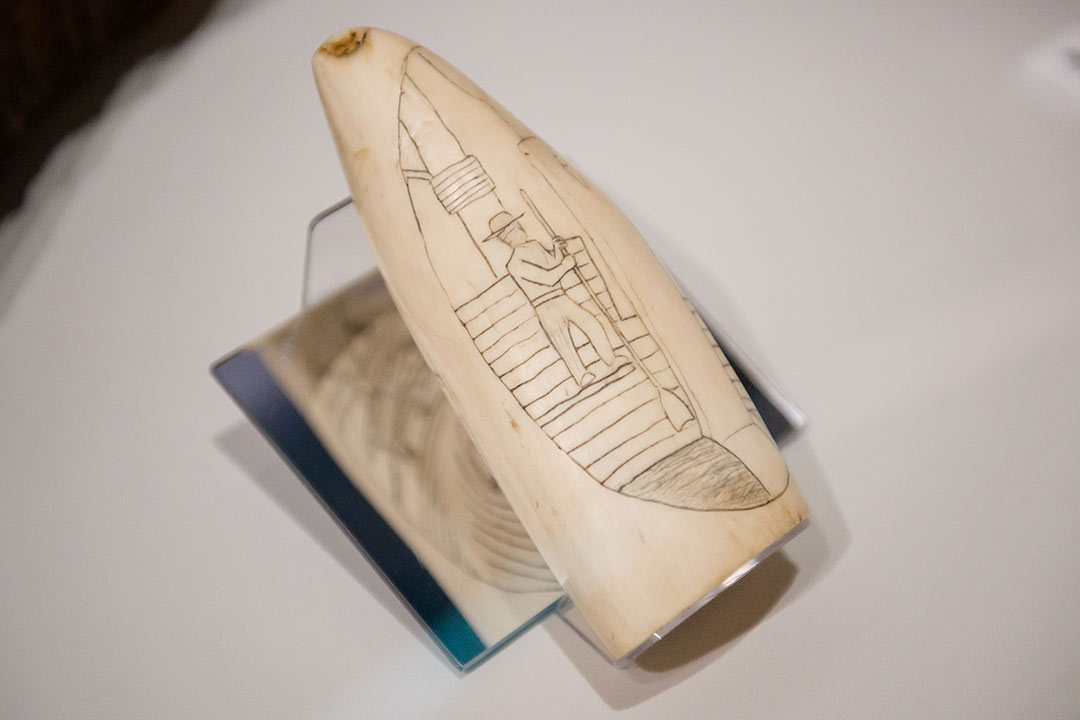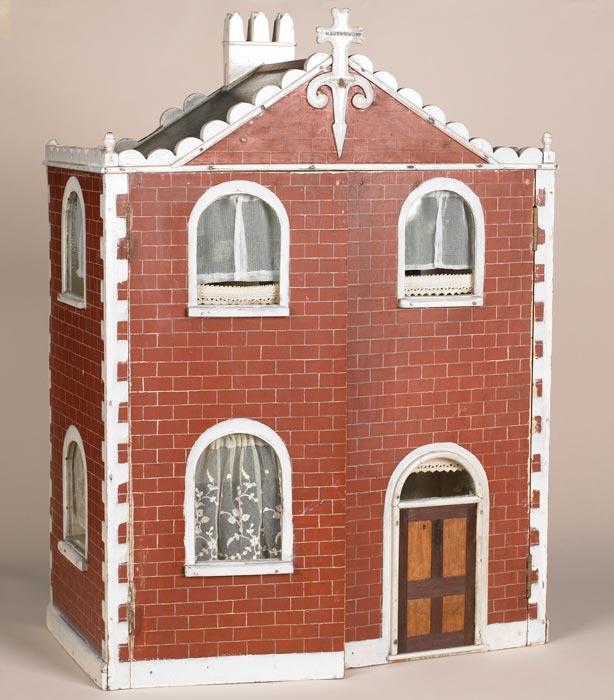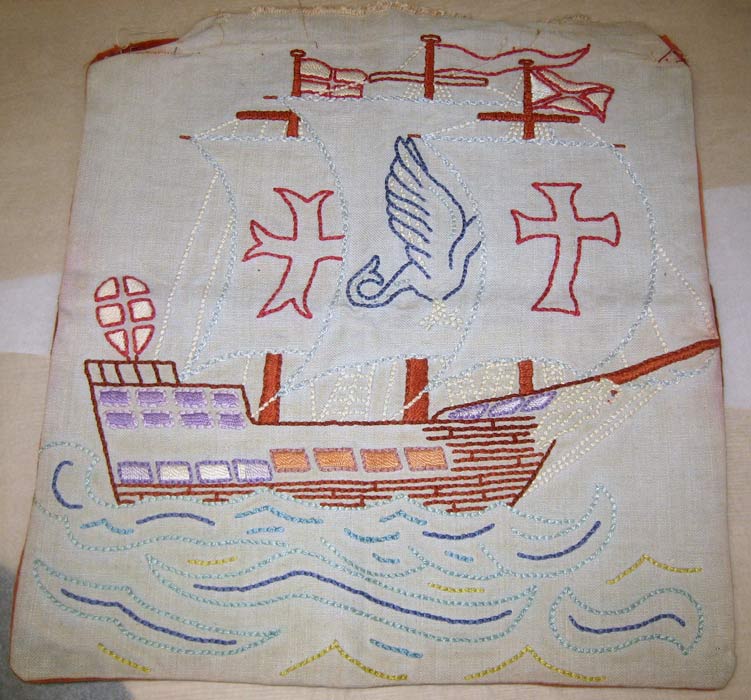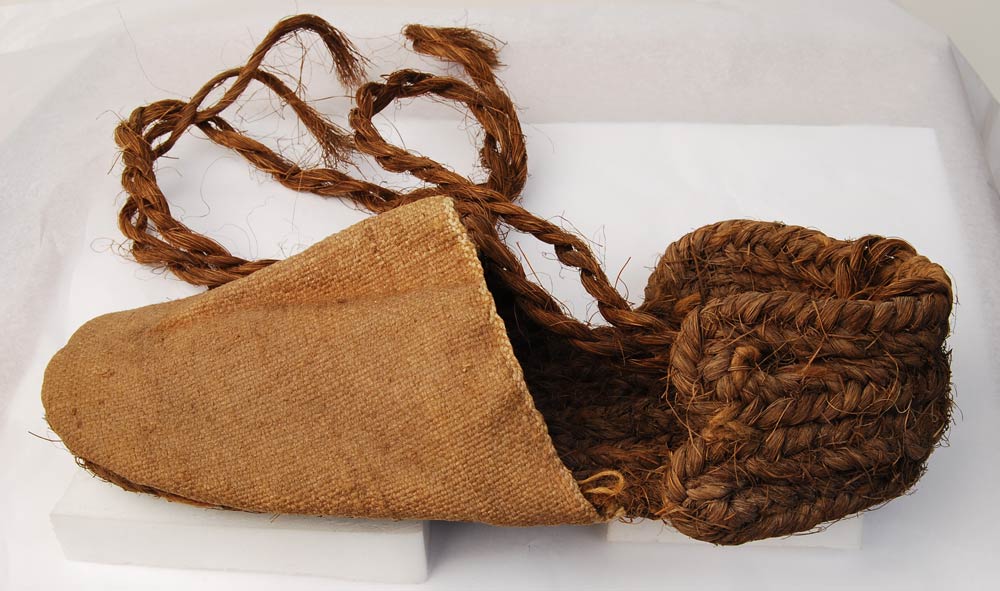
What seafarers can teach us about isolation
During the recent pandemic many people found themselves isolated from friends and loved ones during lockdown. Seafarers have experienced this separation for many centuries when they have been at sea on long journeys. But what can we learn from them?

Like many of us during lockdown, when we were isolated from my friends and colleagues, I spent a lot of time reading. We all have favourite go-to books to read for a bit of comfort and I turned to the journals of a favourite historic seafarer of mine, Captain William Porter. I’ve written about him before, about his emotional struggles and his sweet romance with his wife, Bess. He was a sea captain in the mid-19th century sailing out of Liverpool, and his journals are now held in our Archives Centre.
I’ve often found myself in sympathy with William as I read his journals, but this time this section resonated particularly during lockdown.
"I have been taking a rough estimate of our stores today, and I find we have from 18 to 20 days left, sometimes I have pretty good spirits on it, and at others I can’not help feeling low and dejected about the length of our passage"
It feels like what many of us found ourselves doing in 2020 - checking our stores of food, cleaning materials, (toilet roll!), and in danger of feeling low and dejected by our own long passage through quarantine and social isolation. The kind of isolation we are enduring throughout the Covid-19 pandemic, the separation from our loved ones, the uncertainty, these are things seafarers have experienced as a matter of course for centuries.

William writes about the relief of mind he experiences from having put in to port and had the chance to post some letters, including one to his beloved Bess. William’s eagerness to post his letters reminded me of one of the many oral history interviews held in our Archives Centre. When we interviewed modern day seafarer Robert Keith, he told us he no longer writes letters but e-mails instead:
"On ships nowadays if the internet goes down it’s the end of the world for the crew. It’s amazing how from something that you didn’t have years ago to you rely upon it nowadays…you could be in the middle of an operation and if the internet goes off, job stops, get the internet fixed, back online, all carry on."
Robert’s father was a seafarer before him, and Robert told us that in his father’s day they had only one telephone which was on the bridge. Now though cabins often have wifi, television, DVDs, and Robert even had Sky TV in one. It’s clear to see just how much seafarers have benefited from improved communications technology and the rise of the internet. William could not have expected a quick response from his wife in the 19th century, while Robert can video-call his loved ones.
In a similar way we are now all benefiting from the same technological advances. The internet, for many of us, has become a lifeline. It is a way for us to talk to our friends and families, order food and medicine, and for museums like ours to continue to connect with our visitors, as well as people on the far side of the planet.

So what might we learn from seafarers in combating isolation? From William Porter treasuring letters from his wife, to modern seafarers’ reliance on the internet for e-mails and video calls, we see the paramount importance of communication. Isolation is mentally gruelling, we all found that out in recent years. We may need to be physically separated but we are lucky enough to live in a time where that’s not the barrier to communication it once was. Checking in with each other is vital, whether you prefer to go old school and write some letters, or to get to see your loved ones over a video chat, just keep doing it.
For the time that we are left on our own however our maritime history collections demonstrate many ways in which seafarers have entertained themselves on long sea voyages. Many traditional seafarers’ crafts would have served not only to pass the time but also to keep those who practised them mentally healthy, something we talk about in our Life on Board gallery. You can see some examples of seafarers' crafts from our collection featured here, some of which are on display in the gallery. They include:
- Dollhouse made by a ship’s carpenter in 1881, during a round the world voyage, for Emily Raven, the Captain’s daughter.
- Carved scrimshaw.
- Cushion cover embroidered by Bosun's mate Phil Rex Scott during wartime service in the Battle of the Atlantic.
- Sailor’s rope soled shoe. Seafarers used their ropework and knotting skills to pass the time, as well as for work.
Today we might term these activities ‘mindful’ in a similar way to the current trend for adult colouring books. I’m not sure many of us will be carving scrimshaw or making shoes out of rope, but embroidery, wool crafts and model making continue to be popular hobbies. So why not pick up your needle, your paintbrush, your ditty bag full of modellers’ tools, or maybe even just your pen?

William’s journals do much more than note coordinates and weather conditions, they talk about what he’s doing and feeling and maybe he wrote so frequently because he found it helped. His journals have certainly become an asset to our Archives Centre 150 years on and I hope writing them gave him anything like the same amount of comfort as I have taken in reading them. Through the pandemic we have all lived through something future historians will write about. They’ll do what I do now; they’ll look for primary sources, for their own William Porter. It could be you.
Even if you don’t think you or anyone else will ever want to look back at what you’re going through though, writing can be a way to make sense of, or even peace with, your feelings.
However you choose to pass your time, let's all do so safely and responsibly. Another lesson that we can learn from seafarers is that on a ship everyone's contribution is vital, and every member of the crew must attend to their duties properly to ensure the safety of everyone on board. It's important to talk and support each other, so lets help each other navigate the storm.
